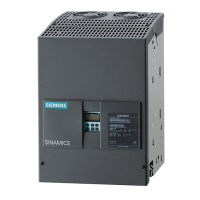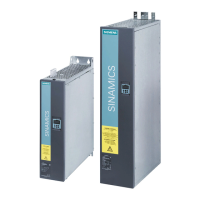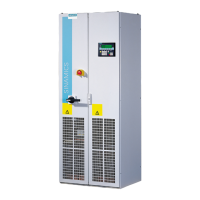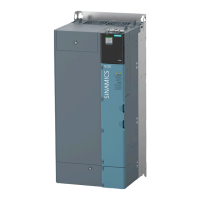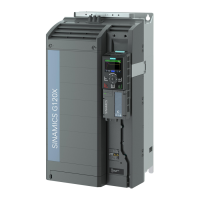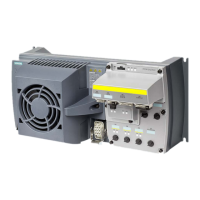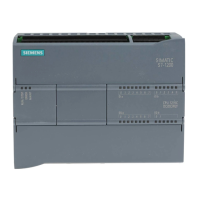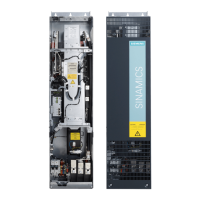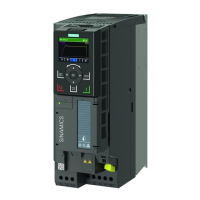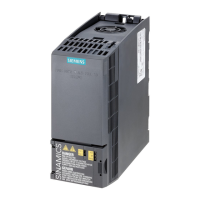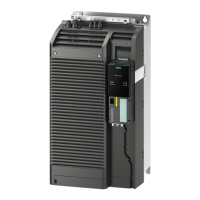Safety Integrated Functions
8.7 Commissioning
Function Manual
448 Function Manual, 01/2011, 6SL3097-4AB10-0BP3
● Selection of an F-DI for the STO, SS1, SS2, SOS and SLS functions and for SLS speed
limits (bit coded) (p10022 to p10028) and SDI.
An F-DI can be assigned several functions.
● Configuration of the "Safe State" signal (p10039)
A failsafe output signal "Safe State" is generated based on the following status signals:
– STO active (Power_removed)
– SS1 active
– SS2 active
– SOS active
– SLS active
– SDI positive
– SDI negative
The status signals of individual functions (PWR_removed, SS1 active etc.) are logically
linked by OR operation.
8.7.4 PROFIsafe configuration with STARTER
Activating PROFIsafe via the expert list
In order to activate Safety Integrated Functions via PROFIsafe, bit 3 of p9601 and p9801 in
the expert list must be set to "1" and bit 2 to "0". Bit 0 must be set to either "1" or "0",
depending on whether or not control via terminals is to be enabled in parallel to control via
PROFIsafe.
Saving and copying Safety Integrated Functions
After setting the specific parameters for Safety Integrated functions (e.g. the PROFIsafe
address), these must be copied from CPU 1 to CPU 2 using the "Copy parameters" button
and activated using the "Activate settings" button.
Acceptance test
An acceptance test needs to be carried out once configuration and commissioning are
complete (see relevant chapter).
Note
If F parameters of the SINAMICS drive are changed in HW Config, the global signature of
the safety program in the SIMATIC F-CPU changes. This means the global signature can be
used to identify whether safety-related settings have changed in the F-CPU (F parameters of
the SINAMICS slave). However, this global signature does not include the safety-relevant
drive parameters so that their change cannot be checked in this way.
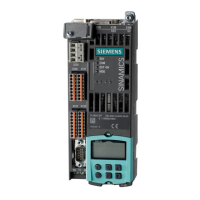
